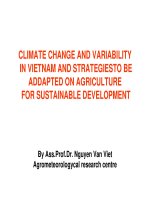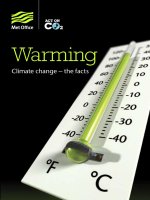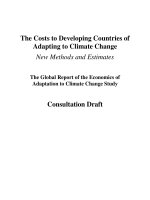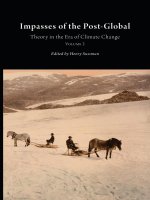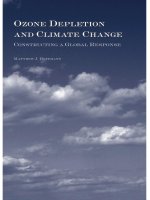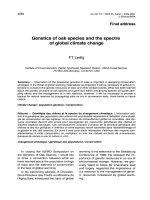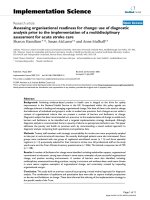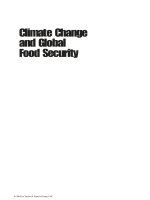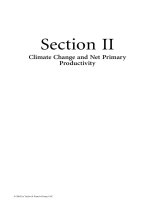2020
Bạn đang xem bản rút gọn của tài liệu. Xem và tải ngay bản đầy đủ của tài liệu tại đây (128.99 KB, 7 trang )
<span class='text_page_counter'>(1)</span><div class='page_container' data-page=1>
<b>Bài tập Tiếng Anh 8 – Tuần từ 17/2 đến 23/2/2020</b>
<b>UNIT 7: POLLUTION</b>
<b>A PHONETICS </b>
<b>1. Put the stress of these words. </b>
<i>Example: eco’nomic </i>
<b>1. aquatic </b> <b>6. logic </b> <b>11. politic </b>
<b>2. mechanic </b> <b>7. identical </b> <b>12. electrical </b>
<b>3. mechanical </b> <b>8. public </b> <b>13. romantic </b>
<b>4. scientific </b> <b>9. Plastic</b> <b>14. lyrical </b>
<b>5. magical </b> <b>10. political </b> <b>15. authentic </b>
<b>2. Find the words that has different stress pattern in each line. </b>
<b>1. A. dramatic</b> <b>B. rhythmic</b> <b>C. angelic</b> <b>D. romantic</b>
<b>2. A. affect</b> <b>B. algae</b> <b>C. billboard</b> <b>D. cholera</b>
<b>3. A. political</b> <b>B. electrical</b> <b>C. identical</b> <b>D. politic</b>
<b>4. A. aquatic</b> <b>B. radiation</b> <b>C. pollution</b> <b>D. logical</b>
<b>5. A. industry</b> <b>B. industrial</b> <b>C. poison</b> <b>D. poisonous</b>
<b>B. GRAMMAR & VOCABULARY </b>
<b>1. Name each type of pollution with its relevant words/phrases. </b>
1. too much use of electric lights
2. caused by the smoke and harmful gases from vehicles and factories
3. The noise which is harmful to humans and animals. This includes the sound of
vehicles, loud speaker …
4. telephone towers, power lines, advertising billboards
5. radiation, land, air, water
6. lakes, rivers, oceans, groundwater, contamination
7. The water temperature in stream, rivers, lakes, or oceans change
8. Earth's surface, destroy, pesticides
<b>2. Complete the table with appropriate verbs, nouns and adjectives. </b>
<b>Verb</b> <b>Noun</b> <b>Adjective</b>
1. danger dangerous
to edit 2. editing/ edited
to annoy 3. annoying/annoyed
to instruct instruction 4.
5. drama dramatic
</div>
<span class='text_page_counter'>(2)</span><div class='page_container' data-page=2>
to heat heat 8.
9. low low
<b>3. Complete the sentences, using the correct form of the words in brackets. </b>
1. Walking alone late at night can be (danger) .
2. The latest (edit) of this book contains many illustrative pictures.
3. Her younger sister can be (annoy) when she behaves haughtily.
4. You must read the (instruct) carefully before you use the new oven.
5. We were taken aback at the (drama) changes in our village; each home owns a computer
now.
6. It is always (interest) to watch the cubs at play.
7. My mother advised me to be careful in my (choose) of friends.
8. The (hot) makes everybody very drowsy during the lesson in class.
9. The couple came here at the special (invite) of the prime minister.
10. Please (low) the volume of your voice. I can even hear you from next door.
<b>4. Choose the correct answers. </b>
1. Many species of wildlife are becoming extinct, the rainforests are being destroyed.
<b>A. </b>therefore <b>B. since</b> <b>C. </b>consequently <b>D. so</b>
2. Hemp can be used to make paper, it could reduce the need for logging.
<b>A. </b>consequently <b>B. </b>due to <b>C. so</b> <b>D. since</b>
3. logging provides jobs and profits, the government is reluctant to control it.
<b>A. so</b> <b>B. </b>Consequently <b>C. Since</b> <b>D. Due to</b>
4. Hemp was grown throughout history its versatility; it can be used to make many different things.
<b>A. due to</b> <b>B. because</b> <b>C. since</b> <b>D. as a result</b>
5. Hemp is related to the marijuana plant; it is illegal in many countries.
<b>A. so</b> <b>B. due to</b> <b>C. as a result</b> <b>D. because</b>
6. The polluted chemical waste was dumped into the ocean; , the mass of fish died.
<b>A. because</b> <b>B. as</b> <b>C. because of</b> <b>D. consequently</b>
7. It was guessed that the fish died a powerful toxin in the sea water.
<b>A. because of</b> <b>B. because</b> <b>C. since</b> <b>D. as a result</b>
8. Many species in BC are threatened logging.
<b>A. so</b> <b>B. because</b> <b>C. since</b> <b>D. due to</b>
9. Smoking can heart disease.
<b>A. lead to</b> <b>B. create</b> <b>C. causes</b> <b>D. due to</b>
10.Radioactive pollution is increasing the increased use of radioactivity.
<b>A. as</b> <b>B. since</b> <b>C. because of</b> <b>D. because</b>
<b>5. Combine the sentences in each pair into a new sentence that shows a cause/ effect relationship.</b>
<b>Use cause and effect signal word or phrase given in brackets. </b>
</div>
<span class='text_page_counter'>(3)</span><div class='page_container' data-page=3>
______________________________________________________________________________________
2. The global population has increased. There are much better levels of nutrition. (because of)
______________________________________________________________________________________
3. Nuclear explosions and detonations of nuclear weapons cause radioactive pollution. (lead to)
______________________________________________________________________________________
4. More and more roads are being built. Air pollution is rising. (as a consequence)
______________________________________________________________________________________
5. In the last ten years, many BC valleys have been clearcut. 142 species of salmon have become
extinct. (so)
______________________________________________________________________________________
6. The fish and other aquatic animals have died. The water is polluted. (due to)
______________________________________________________________________________________
<b>6. Put in the correct prepositions in the blanks.</b>
<b>7. Put the verbs in brackets into the correct form of conditional sentence type 1. </b>
1. If people (pollute) the environment, a lot of animals (die) .
2. If water (consist) germs, people (get) ill.
3. If the poles (melt) , huge landmasses (be) under water.
4. Many precious animals (disappear) , if people (cut down) trees.
5. If nuclear waste (throw) away, it (be) very dangerous.
6. If the emission of CO2 (continue) at high rate, the climate (destroy)
.
7. We (save) the trees If we (save) paper.
8. If schools (teach) about environmental problems, All students (know)
how to protect the environment.
9. If more people (travel) by bike or bus, we (not have) traffic jam.
10. If the government (fine) heavily to the factories, they (not dump)
sewage into the ocean.
<b>8. Put the verbs in brackets into the correct form of conditional sentence type 2.</b>
1. If I (be) the president, I (pass) harder regulations for using fertilizers in
agriculture.
2. If I (be) you, I (not eat) that genetically modified potatoes.
3. If big corporations (care) more about the environment and less about their own pockets, the
pollution from factories (not increase) so fast.
</div>
<span class='text_page_counter'>(4)</span><div class='page_container' data-page=4>
5. If the seas (pollute) , maybe the population of whales (recover) .
6. If I (not throw) this can of Coke into the bushes, I (not know)
that Coke is poison for wild animals.
7. If the factories (not dump) untreated waste into the ocean, fish (die)
massively.
8. What (do) you if you (be) President.
9. If the air (not be) dirty, the breathing problems (reduce) .
10. If I (own) a lonely island, I (build) a huge house by the beach.
<b>9. Put the verbs in brackets into the correct form.</b>
1. If you (send) this letter now, she (receive) it tomorrow.
2. Kate (go) shopping if she (have) time in the afternoon.
3. She (spend) a year in the USA if it (be) easier to get a green card.
4. If her boyfriend (phone/ not) today, she (leave) him.
5. If you (go) by bike more often, you (be/ not) so flabby.
6. If he (have) more time, he (earn) karate.
7. He (not buy) so much clothes if he (not have) .
8. If I (play) the lottery yesterday, I (have) a chance to hit the jackpot.
9. If I (be) ) rich, my life (change) completely.
10. I (invite) ) all my friends if I (have) ) a house by the beach.
<b>10. Write conditional sentences type I or II for these situation.</b>
l. People eat dirty food. They can be cancer.
______________________________________________________________________________________
2. A factory directly discharges a large volume of waste water into the Thi Vai River. The river is
polluted.
______________________________________________________________________________________
3. Farmers use polluted water to water their plants. People eat these plants, they become sick with
diseases such as diarrhea, bacterial inflections even cancer.
______________________________________________________________________________________
4. Thermal pollution takes place. The water temperature in streams, rivers, lakes and oceans will
increase or decrease suddenly.
______________________________________________________________________________________
______________________________________________________________________________________
5. People live in radioactive pollution area. They can be skin cancer.
______________________________________________________________________________________
<b>C. SPEAKING </b>
<b>1. Work with partner and think about the effects of these situations. </b>
1. What will happen if we breathe in toxic smoke?
</div>
<span class='text_page_counter'>(5)</span><div class='page_container' data-page=5>
4. What will happen if the government can't think of any methods to solve the pollution problems?
<b>2. Talk about this topic: </b>
<b>A river near your neighborhood is polluted seriously. Discuss with your friend and find out the</b>
<b>solutions to solve this problem. </b>
<i>Hint: You should find out the pollutants cause the river polluted then solve the causes</i>
<b>D. READING </b>
<b>1. Read the text then choose the best answer. </b>
<b>ENVIRONMENTAL POLLUTION</b>
<b>New words:</b>
muggy (adi) nồm ẩm, oi bức
stuffy (adi) ngột ngạt
1. What is not the reasons of environmental pollution?
<b>A. high population density </b> <b>B. smoke and dust from vehicles </b>
<b>C. domestic waste </b> <b>D. the new drainage system </b>
2. What is the first reason of environmental pollution?
<b>A. domestic waste </b> <b>B. smoke and dust from vehicles </b>
<b>C. population density </b> <b>D. rubbish on streets </b>
<b>3. What is the synonym of the word "consciousness"? </b>
<b>A. awareness </b> <b>B. unculture </b> <b>C. unconsciousness </b> <b>D. awakeness</b>
<b>4. Why vehicles cause air pollution? </b>
<b>A. Vehicles make the atmosphere in our city muggy and stuffy. </b>
<b>B. Because they expel a lot of smoke and dust. </b>
<b>C. Because they consume too much gasoline. </b>
<b>D. Because many people use motorbikes and cars nowadays.</b>
<b>5. How is the drain system in our city? </b>
<b>A. It’s very modern. </b> <b>B. It's downgrade. </b>
<b>C. It is new. </b> <b>D. It is very old and downgrade </b>
<b>2. Read the text then decide these sentences are true or false. </b>
<b>CLIMATE CHANGE AND GLOBAL WARMING</b>
In recent years the problem of environmental pollution has become a serious problem in big cities in our
country. So, what are reasons and possible measures for this problem?
Nowadays, we are living in a city with high population density, so domestic waste is the first reason.
Then many people's social consciousness is not high. In several areas, they throw rubbish on streets, canals
and rivers. It is easy for us to see rubbish of all kinds floating on the water. Moreover, uncultured people
even pee in the public place.
Now, let's come to other reasons. Our city is overloaded with vehicles that expel a lot of smoke and dust.
This contributes to the heat of the air, and causes pollution.
</div>
<span class='text_page_counter'>(6)</span><div class='page_container' data-page=6>
Climate change, also called global warming, refers to the rise in average surface temperatures on
Earth. An overwhelming scientific consensus maintains that climate change is due primarily to the
human use of fossil fuels, which releases carbon dioxide and other greenhouse gases into the air. The
gases trap heat within the atmosphere, which can have a range of effects on ecosystems, including rising
sea levels, severe weather events, and droughts that render landscapes more susceptible to wildfires.
<b>The green house effect </b>
While other planets in Earth's solar system are either scorching hot or bitterly old, Earth's surface has
relatively mild, stable temperatures. Earth enjoys these temperatures because of its atmosphere, which is
the thin layer of gases that cloak and protect the planet. However, 97 percent of climate scientists agree
that humans have changed Earth's atmosphere in dramatic ways over the past two centuries, resulting in
global warming
The exchange of incoming and outgoing radiation that warms the Earth is often referred to as the
greenhouse effect because a greenhouse works in much the same way. Incoming UV radiation easily
passes through the glass walls of a greenhouse and is absorbed by the plants and hard surfaces inside.
Weaker IR radiation, however, has difficulty passing through the glass walls and is trapped inside, thus
warming the greenhouse. This effect lets tropical plants thrive inside a greenhouse, even during a cold
winter.
<b>Consequences of global warming o</b>
There are two major effects of global warming: the increase of temperature on the earth by about 30
to 50<sub>C (5.4</sub>0<sub> to 9</sub>0<sub> Fahrenheit) by the year 2100 are Rise of sea levels by at least 25 meters (82 feet) by</sub>
the year 2100. Other consequences are listed below:
Sea levels are rising due to thermal expansion of the ocean, in addition to melting of land ice.
Amounts and patterns of precipitation are changing.
The total annual power of hurricanes has already increased markedly since 1975 because their
average intensity and average duration have increased.
Changes in temperature and precipitation patterns increase the frequency, duration, and intensity
of other extreme weather events, such as floods, droughts heat waves, and tornadoes.
Higher or lower agricultural yields, further glacial retreat, reduced summer stream flows, species
extinctions.
Diseases like malaria are returning into areas where they have been extinguished earlier
Sources: Wikipedia | Time for change
<b>Circle the correct answers. </b>
l. Climate change is the rise in average surface temperatures on Earth.
<b>a. true </b> <b>b. false </b>
2. Climate change observed in the last decades is natural.
<b>a. true </b> <b>b. false </b>
3. Fossil fuels are burnt which releases carbon dioxide and other greenhouse gases into the air.
<b>a. true </b> <b>b. false </b>
4. Greenhouse effects have no impacts on our health.
<b>a. true. </b> <b>b. false </b>
5. Earth's surface has relatively mild, stable temperatures while the others are not.
</div>
<span class='text_page_counter'>(7)</span><div class='page_container' data-page=7>
6. UV radiation and IR radiation easily passes through the glass walls of a greenhouse and is trapped
inside causing greenhouse effect.
<b>a. true </b> <b>b. false </b>
7. Sea levels are rising because of ice melt and thermal pollution.
<b>a. true </b> <b>b. false. </b>
8. Global warming causes the increase of temperature on the earth and the rise of sea levels.
<b>a. true </b> <b>b. false </b>
9. Humans have changed Earth's atmosphere in dramatic ways over the past twenty centuries.
<b>a. true </b> <b> b. false </b>
10. Global warming can cause some diseases like malaria.
</div>
<!--links-->
